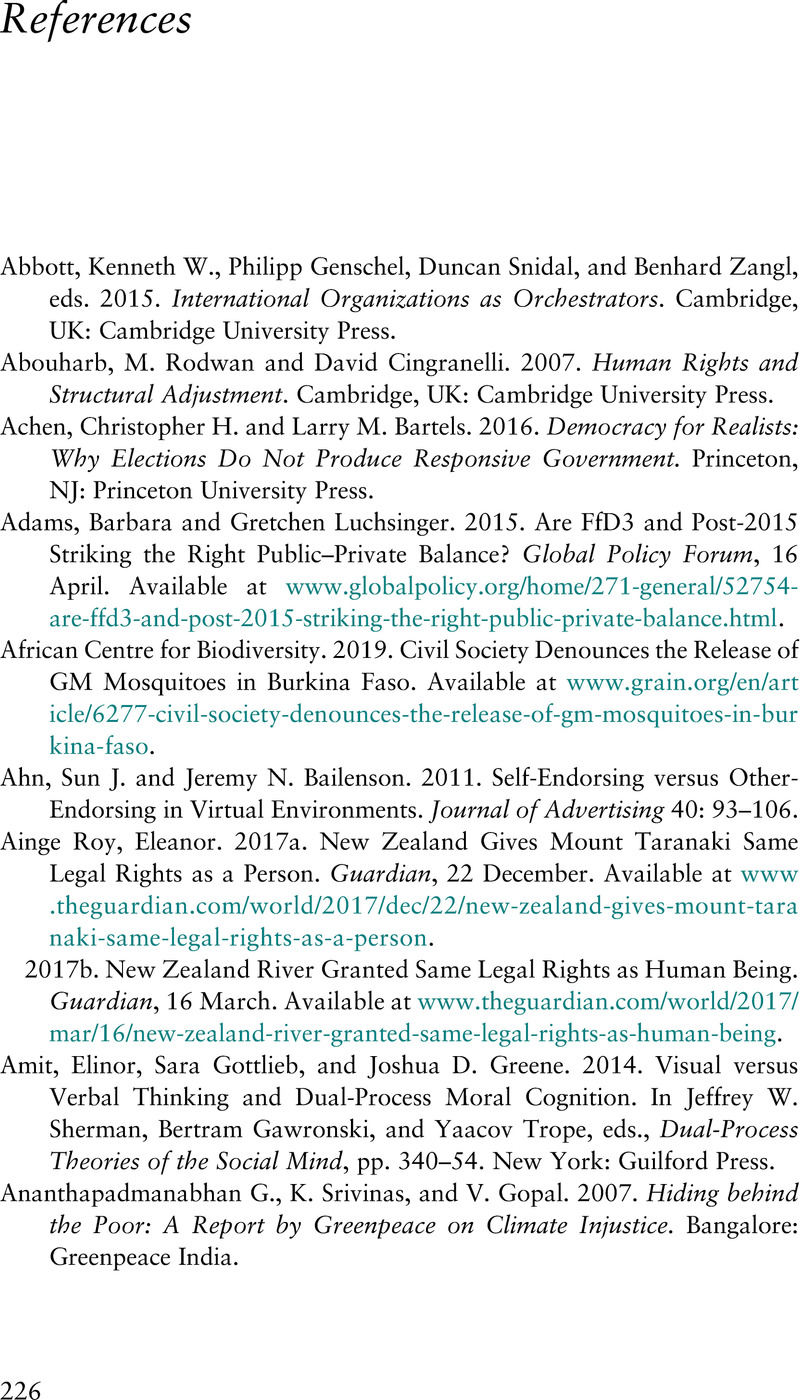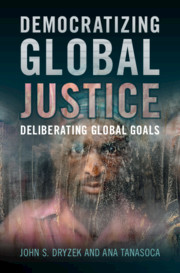Book contents
- Democratizing Global Justice
- Democratizing Global Justice
- Copyright page
- Contents
- Preface
- List of Abbreviations
- 1 Introduction
- 2 Agents of Justice
- 3 Democratizing Formal Authority
- 4 Democratizing Money
- 5 Democratizing the Power of Words
- 6 Empowering the Many
- 7 Democratizing Intergenerational, Interspecies, and Ecological Justice
- 8 Global Justice in the Deliberative System
- 9 Conclusion
- References
- Index
- References
References
Published online by Cambridge University Press: 21 May 2021
- Democratizing Global Justice
- Democratizing Global Justice
- Copyright page
- Contents
- Preface
- List of Abbreviations
- 1 Introduction
- 2 Agents of Justice
- 3 Democratizing Formal Authority
- 4 Democratizing Money
- 5 Democratizing the Power of Words
- 6 Empowering the Many
- 7 Democratizing Intergenerational, Interspecies, and Ecological Justice
- 8 Global Justice in the Deliberative System
- 9 Conclusion
- References
- Index
- References
Summary

- Type
- Chapter
- Information
- Democratizing Global JusticeDeliberating Global Goals, pp. 226 - 249Publisher: Cambridge University PressPrint publication year: 2021



